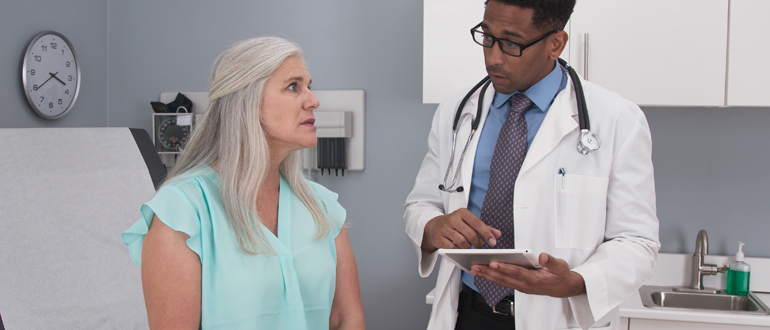CHWs in the community: a medical home for everybody

The Community Health Workers (CHWs) of Health Care Access Now (HCAN) recently got together to talk about the challenges they face connecting clients with medical homes—and the great things that can happen once clients receive regular preventive medical care.
The challenges
HCAN’s CHWs provide one-on-one care to vulnerable and/or marginalized community members by helping them overcome obstacles to good health outcomes. One important step in that journey is establishing a medical home: a provider with whom the client can build trust. However, there are many challenges that CHWs face as they try to connect clients with practitioners.
Lynniece Scurry, CHW, HCAN: “One of the biggest issues is trying to find a practice with openings that specializes in the client’s condition. Transportation is another big one.”
Jade Glover, CHW, HCAN: “I agree with that. It can also be tough to find something that’s quality—and everything is overbooked during the pandemic. Some clients have to wait a couple of months to establish care.”
Dominique Johnson, CHW, HCAN: “I have gone to Urgent Care with clients just so they can get the care they need [while they’re waiting to establish care with a primary physician]. I follow up with doctors and explain the situation to try to get clients in faster.”
The fears
Not all the medical home challenges that CHWs face are external. Sometimes HCAN’s clients don’t understand why establishing a medical home is necessary or beneficial. CHWs help their clients face fears and take the necessary steps toward getting regular care. In a recent interview with Lynniece Scurry, she talks about the many ways she works with clients to understand the importance of a medical home.
Denise Harris, Director, Care Coordination Services, HCAN: “Many people CHWs see have a fear of the unknown, so they wait until they get really ill before they go to the emergency room. What people don’t realize is that [preventive care like] annual blood work can prevent a medical crisis. If you know your numbers—especially when it comes to hypertension and diabetes—you can prevent kidney or eyesight damage. You need to get to know your body early on.”
Tessa Johnson, CHW, HCAN: “You don’t want to wait till something happens. You want to go to a doctor you feel comfortable with, who knows your history. That doesn’t happen when you go to Urgent Care or the emergency room. I myself switched insurance providers and got sick while in the process of changing doctors. I had to go to Urgent Care, and it was not personal. It was just in-and-out. The doctors are seeing all these people and moving fast.”
Jade Glover: “Part of the fear that clients face is about having had a disconnect with the medical community for so long. They haven’t been heard. Nobody listened. So they don’t trust the prescribed regimen. They’re not comfortable expressing concerns, asking questions, or doing the follow-up.”
The results
All of HCAN’s CHWs have success stories where clients established a medical home and the result was improved health. Here are some highlights.
Dominique Johnson: “I just had a client who had been having hypertension issues. She was in a high-risk category, with six sons, one only a year old. She had been going to the emergency room, and no one knew her situation. Her blood pressure was 150/112, and her heart rate was 110 [beats per minute]. I got her into a medical facility as quickly as possible, and her numbers dropped into a healthy range quickly. At her most recent checkup, her blood pressure was 118/76, and her heart rate was 53.”
Tessa Johnson: “One thing that struck me in speaking with a client recently was that she hadn’t understood the range of family planning options available beyond the birth control pill until her doctor [at her medical home] went into detail. They didn’t push her to choose any one thing. The nurse followed up with her to make sure she understood the options and was comfortable with everything. It’s so good to hear that she was informed and got that follow-up.”
Jade Glover: “Some clients have blood sugar or blood pressure spikes, and after they start following what their [medical home’s] doctor suggests, once they know what to look for when they’re not feeling well, they can become symptom free. Seeing that bridge built is amazing. Primary care is there to teach you as well as treat you.”






